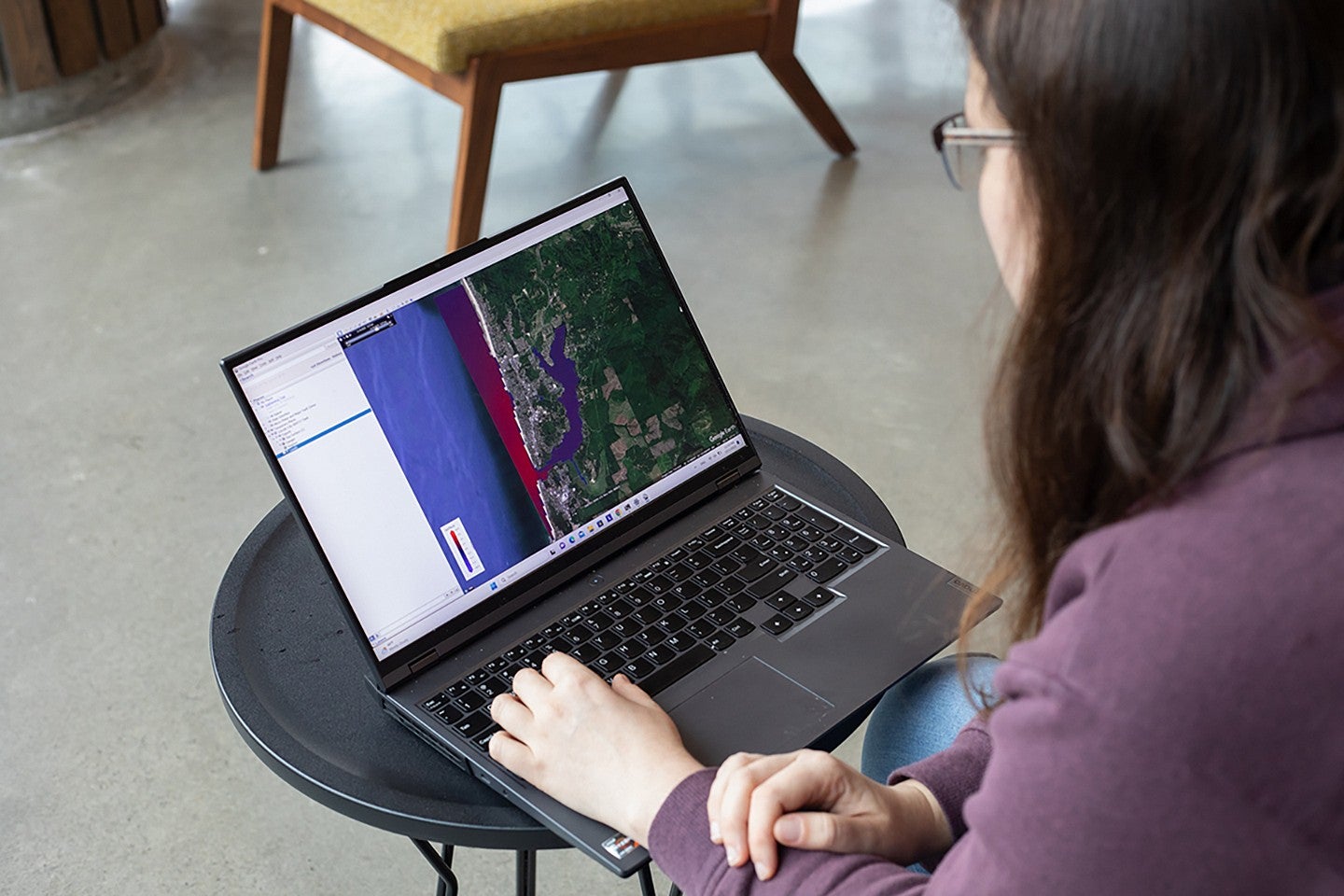
Coding for the coast
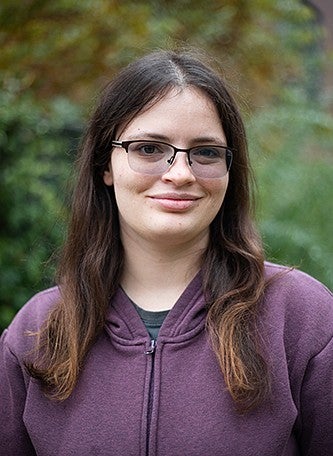
Major: Data Science
Hometown: San Diego, Calif.
Coffee or tea: I like the smell of coffee. I don't like the taste of it.
Guilty Pleasure: Reading. I will sometimes do the usual stay up ’til 3 thing. Or I’ll get distracted and read for an hour or two when I should really be doing homework.
Song on Repeat: I’ll play a song over and over until I get bored of it. Right now, I’m listening to a lot of folk rock.
Advice on approaching the CHC thesis: Don’t be afraid to ask questions. In the beginning, I was in Dean (Carol) Stabile’s office every single week. One time I showed up and I was so stressed and told her, “I feel like I’m not doing enough.” And she responded to me: “You don’t have to write the next 'War and Peace!'”
The winding path Lynette Wotruba took in her time at the Clark Honors College isn’t unique.
A lifelong reader, she came to the University of Oregon and quickly decided to major in English. Books, she says, were her refuge – until professors began making demands that her reading time focus on things she didn’t necessarily want to read.
During the tumultuous pandemic, she took a gap year and worked as a zookeeper’s aide, tending to mountain lions, hawks and other wildlife. As someone who loves birds, the experience gave Wotruba quite a thrill. “Did you know parrots can break through bone with their beaks?” she asks almost matter-of-factly.
When Wotruba returned to campus, she dropped English and switched her major to computer science. Then she narrowed her focus to data science. Today, her research is helping communities on the Oregon Coast understand the dangers of tsunamis, a focus of her CHC thesis.
“In some ways, Lynette Wotruba is your quintessential Clark Honors College Student,” says CHC Interim Dean Carol Stabile, Wotruba’s academic advisor. “I think her most impressive trait is her persistence… We usually look at people at the other side of their thesis and we see their beautiful finished product and not the extraordinary determination and hard work that went into making these projects.”
We sat down with Wotruba to discuss her journey, her data science work and her love of wildlife.
This interview was edited for clarity and length.
How did you end up at the Honors College?
I was looking at schools (along) the West Coast, but you know how you just have one place you really see yourself? Oregon was that for me. And I thought: I might as well try out the Honors College, too.
You didn't start out as a data science major. What happened?
I came into college as an English major. And then I got to a point where I realized although I like reading, I don’t like reading what they make me read and I don’t like writing papers. But I was in a computer science class at the same time (that) I was really enjoying, so I called up my mom in tears and said: “I’ve been doing one thing for the past two-and-a-half years, but I think I should be a computer science major.” And she said: “Oh honey, I’ve known you should be a computer science major for years.”
I responded with: “Not helping.”
So I tried out computer science, and then COVID happened and I needed to take a break. I talked with my mom and said, “Well, there’s this one other thing I’ve always wanted to be: a zookeeper.” So I went on a gap year and I spent three months in the middle of Georgia at a zoo. That gave me a lot of amazing experiences, but I knew when I returned to UO I was ready to try something new. And that was data science, which has brought me to where I am today.
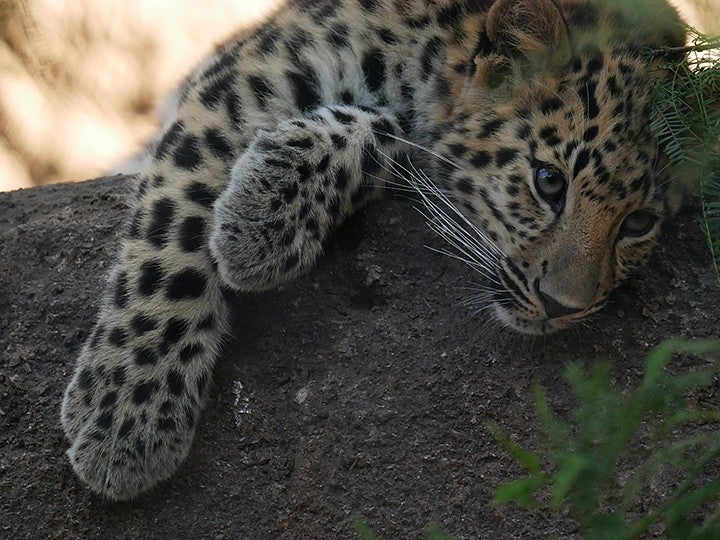
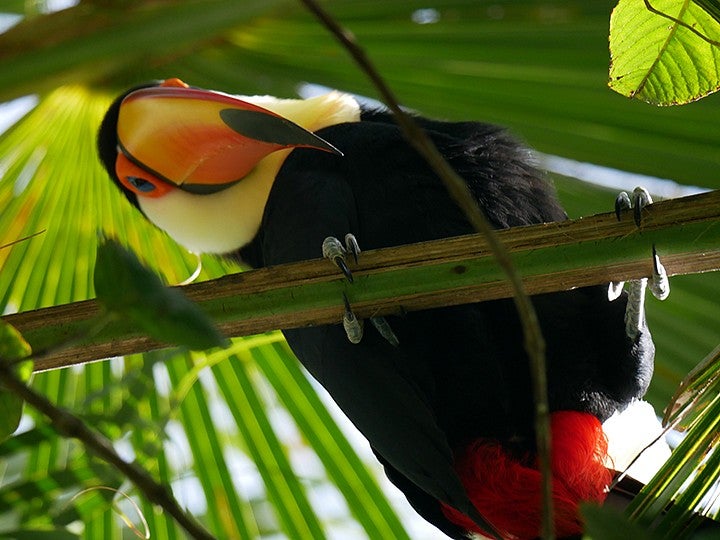
Would you say your mom is an inspiration in your life?
She talks a lot about how we basically have the same brain. More than inspiration, she’s like a roadmap for me. I can see what she’s done and I get to build from there.
OK, building from there, how would you explain what data science is and why it's of interest to you?
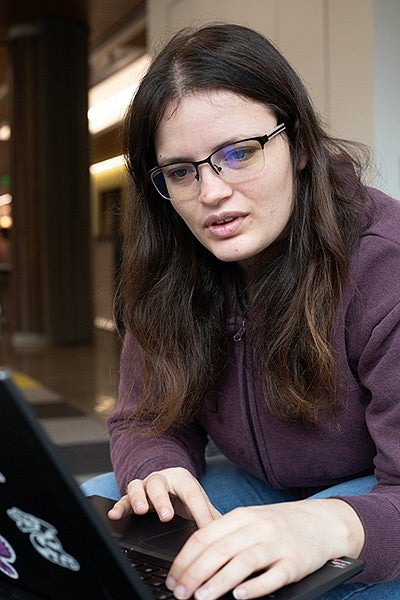
Data science is essentially statistics of code. You’re doing all the different analysis you usually would with statistics, but it’s assisted by computers. It’s both doing the math of statistics but also using computers and code to help visualize whatever you’re trying to find, and specifically to help visualize it in ways that helps your audience understand it.
Why am I interested in it? Well, when I was a computer science major, most of my friends were in it to be game developers or some sort of back-end developer where they’re building stuff. I like coding, but I was not interested in that. I like data science because it still lets me code but almost in smaller, more manageable snippets. I feel like the problems you solve are more manageable than having to just be like, “Oh yeah, spend your next three years building this game.”
Tell us about the tsunami modeling project.
It’s like a mini project for my advisor, Diego Melgar, based (on) their larger work. They’re working on the Cascadia Subduction Zone, which is the big fault line that goes from Northern California all along the upper North American coast, through Canada and to Alaska. There have been a lot of earthquake models on it, but there haven’t been very many models on the tsunami side of things. So, what I’ve done is make the tsunami models, but also model it on Google Earth so that it’s more accessible to the public. You run a computer simulation where the computer runs an earthquake, and then physics comes in and figures, “Hey, if this earthquake moves the Earth this far, that means the water’s going to move that far.” Every snapshot I’ve designed comes in five-minute increments, and I’ve made the colors of the water transparent, so people can understand what the water would cover in the case of a tsunami.
“Everyone deserves to be able to learn and understand new data, especially with something as important as natural disasters that can and probably will affect you, depending on where you’re living.”
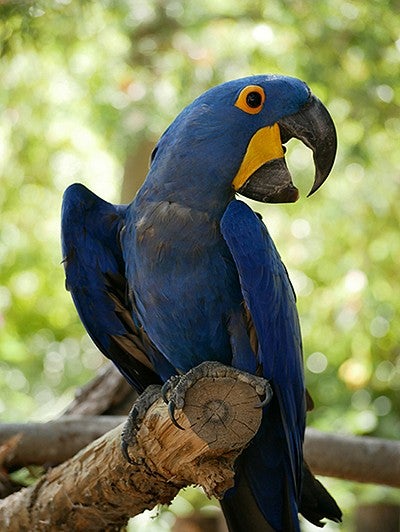
How will you implement this?
Our main goal is to put these models in visitor centers, so you could walk in and see what you could expect if a tsunami happened. I had to pick a specific city, so I picked Lincoln City. It’s relatively big and super flat. It also has a lake, which I thought would be interesting (in the case of) a tsunami to see how another body of water is affected.
Can you talk more about how data science has the power to make information more accessible?
Everyone deserves to be able to learn and understand new data, especially with something as important as natural disasters that can and probably will affect you, depending on where you’re living. Accessibility is important because people deserve to know how they can make themselves safe.
Is data science something you’ll make a career out of? What would your dream job be in the field?
Coding will definitely be part of my career. I may stick with data science or I may go into the more IT side of things. I don’t know if data science will be the main portion of my career, but it’s a sort of means to an end to where I want to be. I’d really like to work at the Cornell labs that track bird migrations because that combines my love for computers and birds. No matter where I end up, I hope I’m solving a puzzle.
